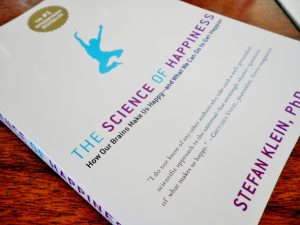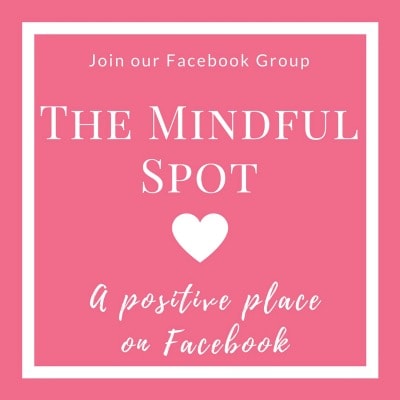The title of this book drew me to instantly. For the past several years I have been obsessed with happiness research and I snatch up anything I can on the subject. I’m not depressed and although I went through a dark period in my life, I don’t think I could ever have been classified as depressed, so I wonder why I am so obsessed with happiness research? I think it has to do with what Oprah calls “living your best life.” The voyeur in me likes to peek into other people’s lives and see how they live, especially if they are happy. I must not be alone in this obsession, because books are getting easier and easier to find. A few months ago I devoured Stefan Klein’s excellent book, The Science of Happiness: How Our Brains Make us Happy– and What We Can Do to Get Happier and it has literally changed my life.
Doesn’t that sound dramatic? But, it’s true: my life has changed. (I would never misuse the word, literally, in place of figuratively. It’s one of my pet peeves.) Although this is not a prescriptive self-help book, it does offer insights that caused me to modify my behavior is small ways. These adjustments have made me noticeably happier.
The Science of Happiness is a lay person’s guide to understanding what scientific research has proven about what makes us happy. Klein is masterful in his ability to explain complex scientific concepts in an accessible and fascinating fashion. Read it with pencil in hand as I underlined many passages. Here are a few things I learned which I applied to my life:
- There is no such things as venting anger. When we blow up over something that irritates us, we don’t actually release anger. Instead we strengthen the neuropathways to associate that annoyance with anger. This means the same type of irritant will get us angrier in a shorter amount of time in the future. Best to just let it go immediately. This has helped me be patient in lines and traffic.
- Our memories distort our perception of happiness and unhappiness. Our last impression of a situation is the most lasting. This has helped me approach my own memories with skepticism. It also helps me to place greater care in how I close a meeting or speech.
- Exercise really does relieve pain and increase happiness. Klein details the physiology convincingly. Because my arthritis means I wake up with morning pain and stiffness, it is tempting to shrug off a workout. However, I have learned that the more I hurt, the more I really need to get moving. This counterintuitive action has diminished my pain significantly.
- Humans thrive on new situations. Even if we think we resist it, change makes us happy. Stepping out of our comfort zone makes life better, so now I challenge myself to go to new places every week.
- Although I might think that I don’t like washing the dishes, accomplishing small tasks increases happiness. That bit of satisfaction does perk me up. We think that when we’re overwhelmed, we should just relax but the opposite is true. Completing a minor task makes us happier, gives us energy and motivates us to keep going.
- Anticipating an event brings us more happiness than the actual event. This concept helps me enjoy the process of working towards a goal. I understand that I will probably get more pleasure from that than the moment of accomplishment. I still want to make my dreams come true, but now I know that the process of making that happen is what will make me happy, not the realization of the dream itself.
There are a lot more tips, and reading the science backing these up is amazing. Here are a few quotes I underlined:
- Sadness is for the most part nothing more than learned unhappiness. And this gives us the ability to overcome it. (183)
- Our resolve in facing life head-on depends much more on the way we assess a situation than on reality. (184)
- Our natural tendency to be bored kicks in only when we neglect to rotate our pleasures. (173)
- People who enjoy life’s beautiful moments fully are also behaving reasonably: They are probably reshaping their brains for the better. (66)
- The brains as well as the bodies of females are designed to have children. (147)
- The brain has different systems for pleasant and unpleasant feelings that are capable of working together, separately and in opposition. (33)
Oh, there’s so much more. Read the book already! Be happy!







Leave a Reply